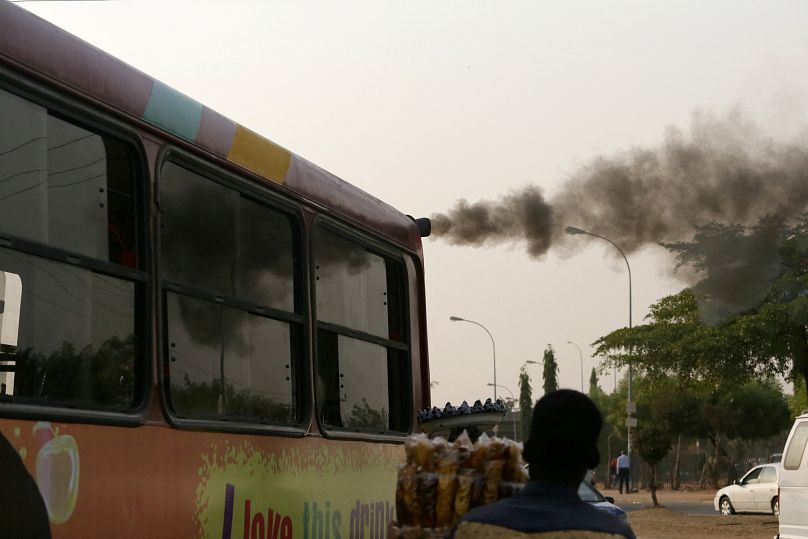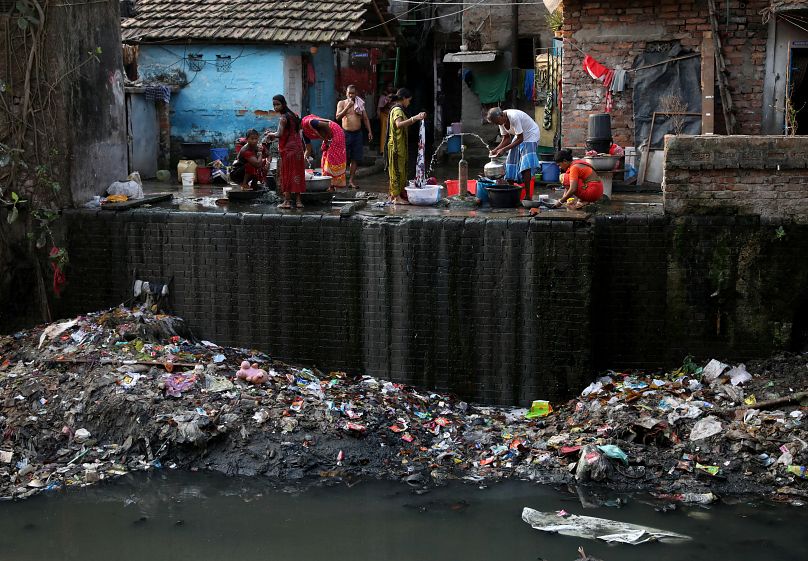Toxic air, soil and water is causing around 9 million deaths a year, while modern pollutants from fossil fuels are "skyrocketing".
Around 9 million people a year are dying from worsening air pollution and toxic lead poisoning, according to scientists.
The staggering death count has continued since 2015, despite modest progress in some countries, a new study finds.
In fact, the data on global mortality and pollution levels indicates a 7 per cent increase in these avoidable deaths from 2015 to 2019, driven by expanding industries, fossil fuels and urbanisation.
"We're sitting in the stew pot and slowly burning," said Richard Fuller, study co-author and head of the global nonprofit Pure Earth. But unlike climate change, malaria, or HIV, "we haven't given [environmental pollution] much focus."
An earlier version of the work published in 2017 also estimated the death toll from pollution at roughly 9 million per year — or about one of every six deaths worldwide — and the cost to the global economy at up to $4.6 trillion (€4.4 trillion) per year.
That puts pollution on par with smoking in terms of global deaths. COVID-19, by comparison, has killed about 6.7 million people globally since the pandemic began.
For their most recent study, published in the online journal Lancet Planetary Health, the authors analysed 2019 data from the Global Burden of Disease, an ongoing study by the University of Washington that assesses overall pollution exposure and calculates mortality risk.
The new analysis looks more specifically at the causes of pollution – separating traditional contaminants such as indoor smoke or sewage from more modern pollutants, like industrial air pollution and toxic chemicals.
African countries are the most impacted by polluted indoor air and water
Deaths from traditional pollutants are declining globally, but they remain a major problem in African nations.
Tainted water, soil and dirty indoor air put Chad, the Central African Republic and Niger as the three countries with the most pollution-related deaths, according to data adjusted for population.
State programmes to cut indoor air pollution and improvements in sanitation have helped to curb death tolls in some places. In Ethiopia and Nigeria, these efforts caused related deaths to drop by two-thirds between 2000 and 2019.
Meanwhile, the Indian government in 2016 began offering to replace wood-burning stoves with gas stove connections.
What are the new pollutants to watch out for?
Deaths caused by exposure to modern pollutants are "just skyrocketing", says co-author Rachael Kupka, executive director of the New York-based Global Alliance on Health and Pollution.
Fossil fuel emissions, heavy metals, agrochemicals and other pollutants have risen by 66 per cent since 2000.
When it comes to outdoor air pollution, some major capital cities have seen some success, including in Bangkok, China, and Mexico City, the authors said.
But in smaller cities, pollution levels continue to climb.
Bulgaria has the highest number of pollution-related deaths in Europe
The study offered a list of the 10 countries most affected by pollution-related deaths, based on their findings on mortality adjusted for population. One European country made the list.
In full, they are:
10. Burkina Faso
9. Bulgaria
8. Lesotho
7. North Korea
6. South Africa
5. Somalia
4. Solomon Islands
3. Niger
2. Central African Republic
1. Chad













